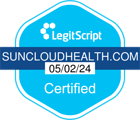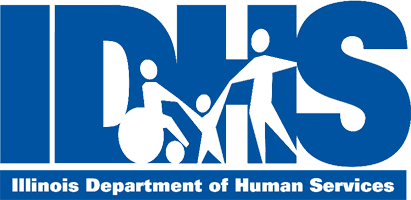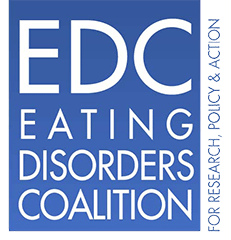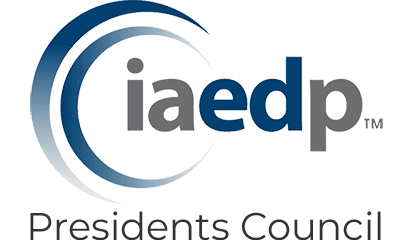The landscape of drug and alcohol use is constantly evolving, shaped by cultural, social, and economic factors that influence each generation differently. As Generation Z (those born between the mid-1990s and early 2010s) comes of age, their patterns of substance use are emerging as both unique and concerning. While many Gen Z individuals are making positive lifestyle choices, some are struggling with substance use that poses risks to their physical and mental health.
At SunCloud Health, we specialize in helping individuals across all generations—including Gen Z—overcome substance use disorders. As a behavioral health treatment provider, we understand the importance of addressing not only the substance use itself but also the underlying emotional and psychological factors that contribute to these issues. Whether you are a member of Gen Z or a concerned parent or loved one, understanding the current trends in drug and alcohol use among this generation is crucial to finding the right help and support.
Trending Substances Among Gen Z: What the Data Shows
Gen Z’s approach to drug and alcohol use differs in several key ways from previous generations, influenced by factors such as social media, mental health struggles, and the availability of new and emerging substances. Here’s a look at some of the trending substances being abused by Gen Z today:
- Nicotine and Vaping
One of the most significant substance use trends among Gen Z is the rise in nicotine use through vaping. According to the National Institute on Drug Abuse (NIDA), the use of e-cigarettes (vapes) has skyrocketed among high school and college-aged students in recent years. In 2022, nearly 40% of high school seniors reported using e-cigarettes, with many being drawn to products containing high levels of nicotine.
Vaping is often perceived as less harmful than traditional smoking, which may explain its popularity among Gen Z. However, the high concentrations of nicotine found in many vaping products can lead to addiction, cognitive impairment, and respiratory issues. Additionally, flavored vape products are particularly appealing to younger users, leading to an increase in nicotine dependence among adolescents and young adults.
- Cannabis Use
Cannabis (marijuana) remains one of the most commonly used substances among Gen Z, with a growing number of states legalizing its recreational use. The normalization of cannabis has made it more accessible to young adults, contributing to an increase in usage. According to the Monitoring the Future study, nearly 44% of 19- to 22-year-olds reported using cannabis in 2022.
While cannabis is often seen as a “safe” or “natural” drug, high-potency products and the frequent use of edibles and vapes can lead to increased risk of dependency, mental health issues (such as anxiety and psychosis), and cognitive impairments, especially for younger users whose brains are still developing.
- Prescription Drug Misuse
Prescription drug misuse, particularly of opioids, benzodiazepines (such as Xanax), and stimulants (such as Adderall), is another concerning trend among Gen Z. Many young adults turn to prescription drugs for self-medication—using stimulants to cope with academic pressure or anxiety, or opioids and benzodiazepines to manage stress or trauma.
While the opioid epidemic has been widely discussed in the context of older generations, it is important to recognize that Gen Z is not immune. In fact, the misuse of prescription drugs among young people can lead to serious consequences, including addiction, overdose, and long-term health issues.
- Alcohol Use
Although alcohol use has declined somewhat among Gen Z compared to previous generations, it remains one of the most widely abused substances. Data from the Centers for Disease Control and Prevention (CDC) shows that binge drinking is still a major concern, particularly among college students and young adults in social settings. Many Gen Z individuals report using alcohol as a way to cope with social anxiety, peer pressure, or academic stress.
The dangers of excessive alcohol use are well-documented and include an increased risk of alcohol poisoning, liver disease, impaired decision-making, and mental health problems such as depression and anxiety. For many young adults, alcohol use can spiral into dependency, requiring professional intervention.
- Polysubstance Use
A growing concern among substance use trends for Gen Z is the rise in polysubstance use—using more than one substance simultaneously or in close succession. This can involve mixing alcohol with cannabis, prescription drugs, or other substances, leading to dangerous interactions and an increased risk of overdose. Polysubstance use often stems from a desire to intensify the effects of one drug or to self-medicate for mental health issues.
What Sets Gen Z Apart in Terms of Substance Use?
While many of the substances abused by Gen Z mirror those used by previous generations, there are a few factors that make their substance use patterns unique:
- Mental Health Challenges
Gen Z is widely recognized as a generation that is more open about discussing mental health, but they are also experiencing higher rates of anxiety, depression, and stress than previous generations. The pressures of social media, academic expectations, financial uncertainty, and global issues (such as climate change and the COVID-19 pandemic) have contributed to an increase in mental health challenges. As a result, many young adults turn to substances as a way to cope with overwhelming emotions, trauma, or stress.
- Influence of Social Media
Social media plays a significant role in shaping the behaviors and attitudes of Gen Z, including their approach to substance use. On platforms like Instagram, TikTok, and Snapchat, substance use is sometimes glamorized or normalized, making it more appealing or acceptable to young adults. At the same time, social media provides a space for young people to learn about harm reduction, mental health support, and sobriety, creating a complex dynamic around substance use behaviors.
- Availability of New Substances
With advancements in technology and the rise of the internet, new and synthetic drugs are more accessible to Gen Z than ever before. Substances like synthetic cannabinoids (often referred to as “K2” or “spice”), synthetic opioids, and designer drugs can be easily purchased online, sometimes with little regulation or awareness of their dangerous effects.
How SunCloud Health Can Help Gen Z Overcome Substance Use
At SunCloud Health, we recognize that the challenges Gen Z faces are unique and complex. As a behavioral health treatment provider, we offer a comprehensive approach to substance use treatment that addresses not only the addiction but also the underlying mental health issues that often accompany it. Our goal is to provide compassionate, evidence-based care that helps young adults break free from substance use and build healthier, more fulfilling lives.
- Integrated Treatment for Substance Use and Mental Health
Many young adults who struggle with substance use are also dealing with mental health disorders such as anxiety, depression, trauma, or ADHD. At SunCloud Health, we offer integrated treatment that addresses both substance use and mental health simultaneously. Our team of psychiatrists, therapists, and addiction specialists work together to create individualized treatment plans that meet the unique needs of each patient.
- Therapeutic Support and Skill-Building
Through individual therapy, group therapy, and family counseling, we help Gen Z individuals develop healthier coping strategies and emotional regulation skills. Cognitive Behavioral Therapy (CBT) and Dialectical Behavior Therapy (DBT) are just two of the evidence-based approaches we use to help patients manage their thoughts, emotions, and behaviors in healthier ways.
- Harm Reduction and Relapse Prevention
For those who may not be ready for complete abstinence, SunCloud Health also offers harm reduction strategies that prioritize safety while reducing the negative consequences of substance use. Our relapse prevention programs provide ongoing support for individuals in recovery, helping them maintain sobriety and build a strong foundation for long-term success.
- Family Involvement
Substance use often affects not only the individual but their entire family. At SunCloud Health, we believe in the importance of family involvement in the recovery process. Our family counseling services help educate loved ones about the realities of substance use and provide tools for supporting a loved one in recovery.
A Resource for Parents and Loved Ones
If you’re a parent or loved one of a Gen Z individual who is struggling with substance use, it can be difficult to know how to help. At SunCloud Health, we offer resources and support for families who are navigating these challenges. Whether you need guidance on how to approach your loved one or are looking for information on treatment options, we are here to help.
Get Help for Substance Use at SunCloud Health
If you or a loved one is part of Gen Z and struggling with drug or alcohol use, SunCloud Health is here to provide the support and treatment you need. Our integrated approach to behavioral health and substance use treatment is designed to address the unique challenges faced by today’s young adults.
To learn more about our substance use treatment programs or to schedule an assessment, contact SunCloud Health today. Together, we can help you or your loved one find a path to recovery and well-being.
SunCloud Health offers comprehensive, evidence-based substance use treatment for Gen Z, with a focus on addressing both mental health and addiction. Our goal is to provide compassionate care that empowers young adults to overcome substance use and lead healthier, more fulfilling lives.





